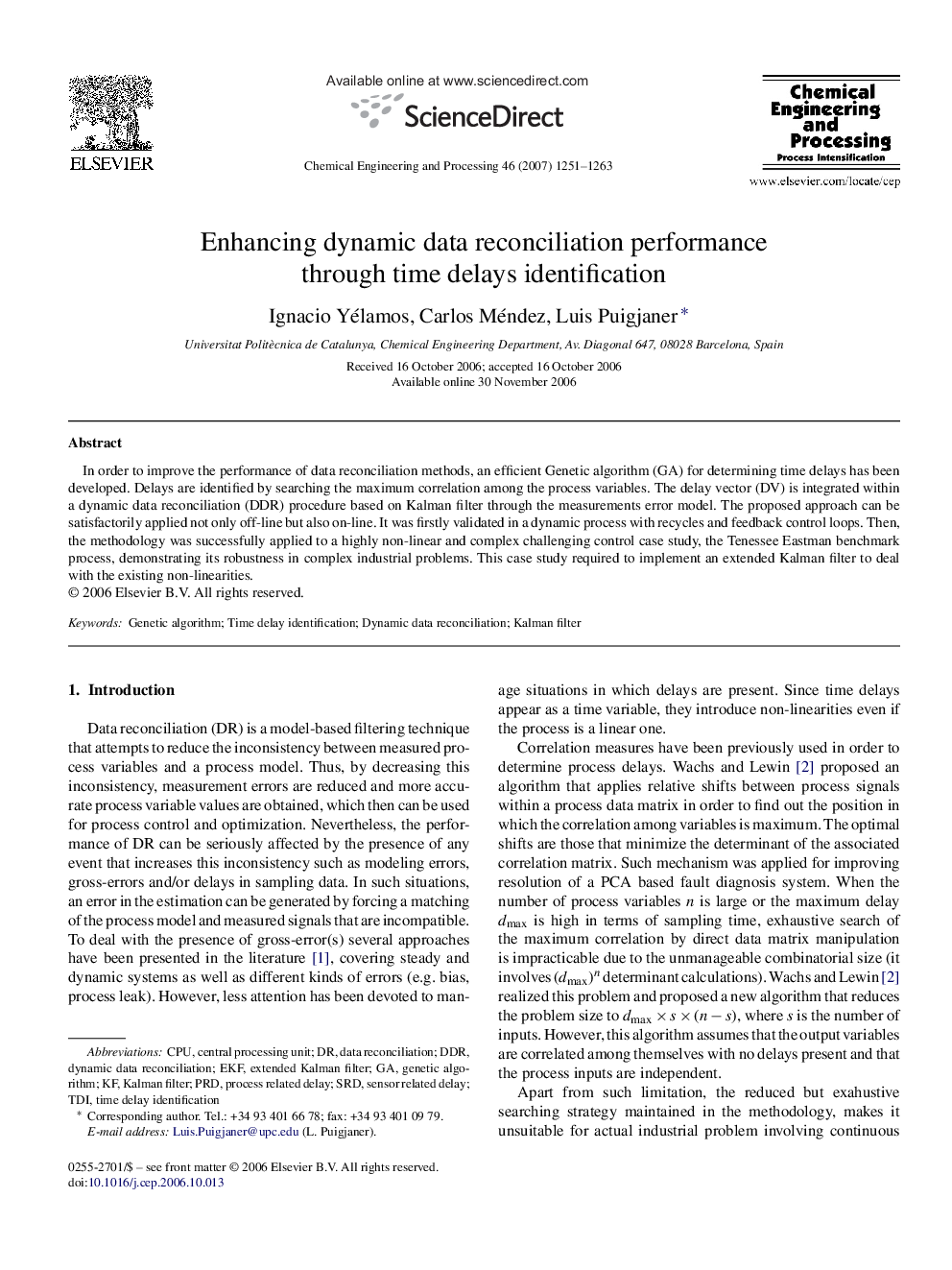| Article ID | Journal | Published Year | Pages | File Type |
|---|---|---|---|---|
| 688222 | Chemical Engineering and Processing: Process Intensification | 2007 | 13 Pages |
In order to improve the performance of data reconciliation methods, an efficient Genetic algorithm (GA) for determining time delays has been developed. Delays are identified by searching the maximum correlation among the process variables. The delay vector (DV) is integrated within a dynamic data reconciliation (DDR) procedure based on Kalman filter through the measurements error model. The proposed approach can be satisfactorily applied not only off-line but also on-line. It was firstly validated in a dynamic process with recycles and feedback control loops. Then, the methodology was successfully applied to a highly non-linear and complex challenging control case study, the Tenessee Eastman benchmark process, demonstrating its robustness in complex industrial problems. This case study required to implement an extended Kalman filter to deal with the existing non-linearities.
